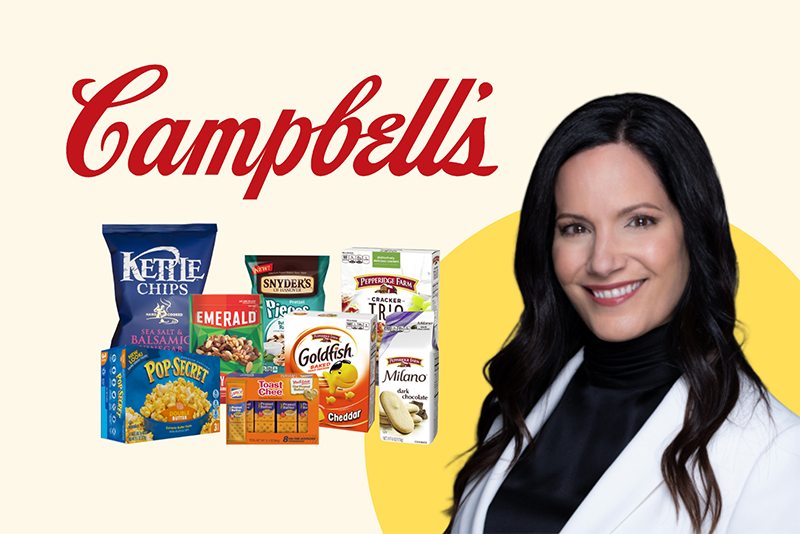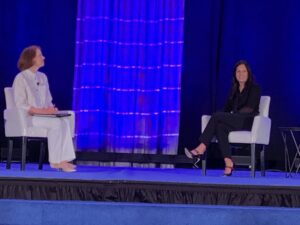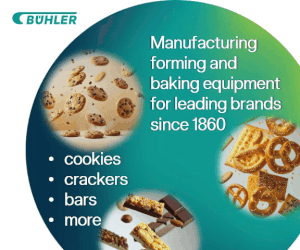CHARLOTTE, NC — Mergers … acquisitions … divestitures … branding … rebranding … new plants … shuttered plants.
It’s been an active couple of years for Norwalk, CT-based Campbell Snacks.
“We’ve been busy, and a lot of that was during COVID,” said Val Oswalt, president of Campbell Snacks, during a Q&A session with SNAC International CEO Elizabeth Avery at the SNAXPO conference, held Aug. 22-24.
Since the 2018 merger between Snyder’s Lance and Pepperidge Farm, which paved the way for the emergence of Campbell Snacks, the company is now a $4 billion business with 17 manufacturing plants across the US. It’s also classified as the third largest snacking company in the country, with products in the bread, snack, cookie and cracker aisles.
“This is a collection of several disruptive brands that were founded by incredible inventors who were really trying to fix a problem,” Oswalt said, referencing entrepreneurs such as Pepperidge Farm founder Margaret Rudkin and Kettle Chips founder Cameron Healy. “These are incredible brands that can leverage a national footprint with the resources of Campbell,” Oswalt said.
The COVID-19 pandemic induced massive change not only for Campbell Snacks but also for Oswalt herself, who took the helm as president in March 2020 amid shutdowns across the country — including closing plants for the company’s nonessential workers — and at the onset of what would become massive disruption in the global supply chain.
“It’s been imperative to focus on the supply chain and making sure we can safely provide food for our country,” Oswalt said. Most of Campbell Snacks’ corporate employees still work remotely without missing a beat in the business or brand continuity.
While the top priority was keeping plant workers safe with tools such as PPE and protective measures inside the facilities, the next step was optimizing lines to effectively and efficiently supply product to customers.


 “When areas of our business declined, we had to figure out how to shift resources to produce items like multipacks,” Oswalt said. “We had to work with our engineers to figure out ways to unlock capacity in the plants.”
“When areas of our business declined, we had to figure out how to shift resources to produce items like multipacks,” Oswalt said. “We had to work with our engineers to figure out ways to unlock capacity in the plants.”



